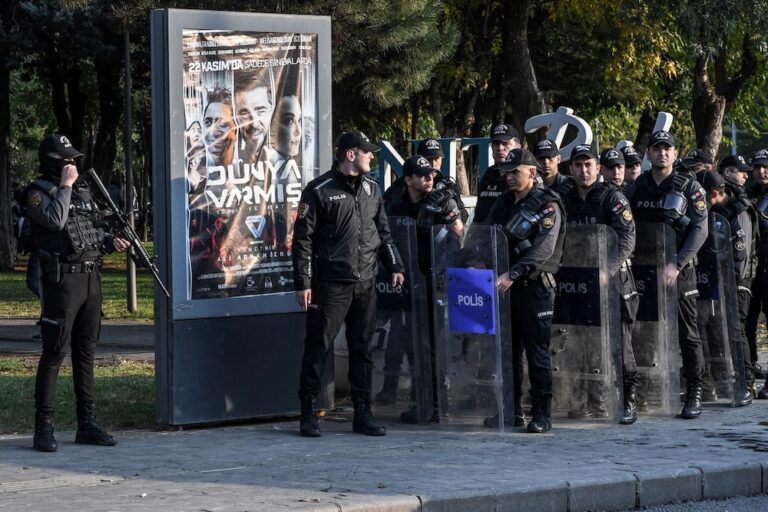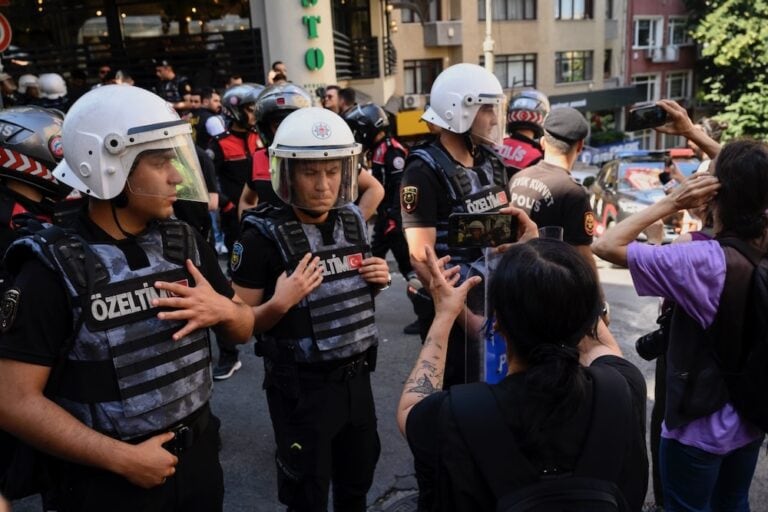(BIANET/IFEX) – “The state made mistakes. When and where? Yesterday, in the East and South-East. Then in Istanbul. In Maras and Sivas. Today in Trabzon, Istanbul, Mersin and in the South-East.” These words have landed journalist Haci Bogatekin in court. Bogatekin owns the local “Gerger Firat” newspaper in Adiyaman, south-eastern Turkey. Because he criticised state […]
(BIANET/IFEX) – “The state made mistakes. When and where? Yesterday, in the East and South-East. Then in Istanbul. In Maras and Sivas. Today in Trabzon, Istanbul, Mersin and in the South-East.”
These words have landed journalist Haci Bogatekin in court.
Bogatekin owns the local “Gerger Firat” newspaper in Adiyaman, south-eastern Turkey. Because he criticised state policies in an article entitled “Turkey has made mistakes”, published in his newspaper on 10 March 2007, he is on trial for “degrading Turkishness, the Republic, state institutions or its organs”, under Article 301.
On 26 September, the Gerger penal court called for a subsequent hearing on 6 November, in order to allow the journalist time to present evidence and prepare his defense.
Bogatekin has requested legal support from the Press Council and has said that he will ask the Adiyaman Bar Association for help.
At the court hearing on 26 September, Bogatekin’s complaint that the indictment had been prepared “without doing any research” was rejected by the court.
In his article, Bogatekin called the state responsible for “the deaths of millions of Armenians and Syriac Christians in the east and south-east regions of the country, as well as for the deaths of the Alevi in Dersim, the Greek Orthodox with the September movement in Istanbul, and more recently, the deaths of hundreds of people in Maras, Malatya, Corum and Sivas”.
He also criticised the employment policies of the state, saying “Do those who murder in the name of the state, who siphon the money out of the banks, make contacts with MIT [the Turkish secret service]? . . . Those exacting money have become like an army, which dares to direct the state. In the east, they have begun to decide on politics. Commanding themselves, they have started to do any job that is dirty and ominous, to exploit the people . . .”
He ends the article by saying, “Keeping this country clean is the duty of us all. If we do not accept this duty, the consequences will be dreadful. We will not have a future.”


